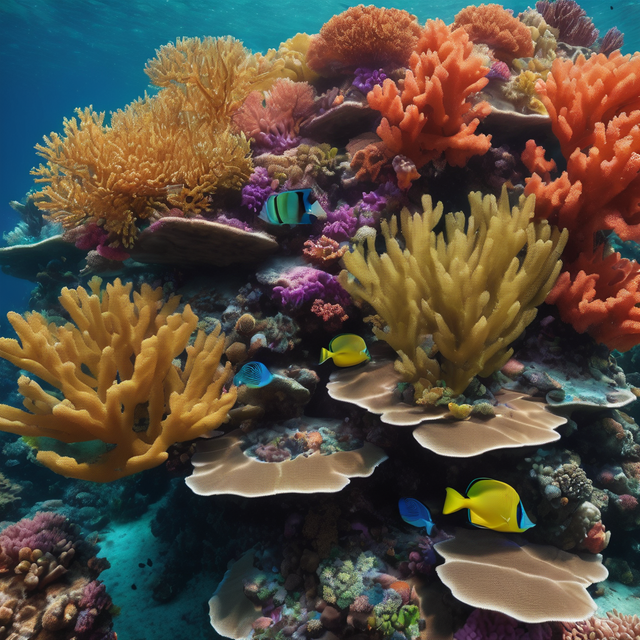Coral reefs across the world are facing an existential threat. About 10% of them have been degraded, another 30% are likely to disappear within the next 20 years. If proper conservation and management measures are not taken, all coral reefs of the Indo-Malayan region might disappear in the next four decades.
Coral reefs are the most diverse ecosystem on the planet. Corals are made up of hundreds of thousands of individual animals known as polyps. Not only are they breathtakingly beautiful, they also provide protection from storms and other natural calamities. They have been called “underwater rainforests” and “magnificent repository of resources”. They act as barriers against waves and thus prevent coastal erosion.
Mangroves and sea grass beds, which act as breeding ground for marine faunal species, are protected by coral reefs. They act as breeding, spawning, nesting and feeding areas for many species of fish and other marine lifeforms. Coral reefs also provide revenue and employment through tourism and recreation. They provide habitats for fish, starfish and sea anemone. It has been assessed that one square kilometre of coral reefs produces 20 to 35 mega tonnes of fishes, sufficient to feed 600 people annually. They are used in jewellery and the lime produced by them is used in the cement industry.
Indonesia has the largest coral reef area in the world. India, Maldives, Sri Lanka and Chagos have the most number of coral reefs in South Asia. The Great Barrier Reef of the Queensland Coast of Australia is the largest aggregate of coral reefs in the world. India has four coral reefs : the Gulf of Mannar, Andaman and Nicobar Islands, Lakshadweep island and the Gulf of Kutch.
Coral reefs are threatened mainly due to anthropogenic activities such as coastal development, destructive fishing practices, and pollution from domestic and industrial sources. They have been deteriorating at a faster rate due to increased sedimentation, over-exploitation and recurring cyclones made even more severe due to global warming. Dynamite and cyanide fishing cause serious threat to the reefs and their biodiversity. As oceans get warmer because of global warming, it causes coral “bleaching” as the symbiotic algae (zooxanthellae) leaves them.
There needs to be an integrated coastal management plan, along with legislative reforms in all countries that host coral reefs. Dynamite and cyanide fishing should be banned everywhere with immediate effect. As should the discharge of sewage and toxic chemicals into water bodies. Anchoring of boats in coral areas should not be allowed. Furthermore, there should be a community led effort in planting mangroves in reef areas.
